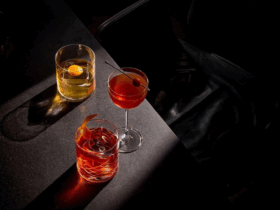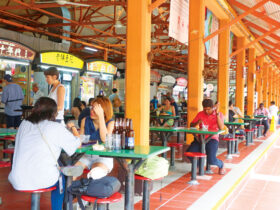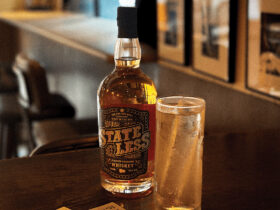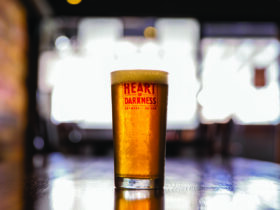
- Bartenders as Brand Influencers
- Need for accredited bartender academies across the region
As Southeast Asia’s cocktail culture explodes, the region finds itself in dire need of skilled bartenders to meet the growing demand. From rooftop bars in Bangkok to hip drinking waterholes in Saigon, a shortage of trained mixologists is staring in the face of the region’s food and beverage realm.
In Asia’s rapidly evolving drinkscape, bartenders are no longer just drink makers—they’re storytellers, educators, listeners, maybe therapists and key influencers shaping consumer preferences. Bartenders are akin to the frontline sales team for the brands. Increasingly, the F&B industry is engaging with bartenders to drive customer-engagement, innovation and growth. However, the hospitality industry is finding it difficult to source skilled/trained bartenders to keep pace with the growth of the F&B sector, per se. A majority of bartenders learn on-the-job which has its own pluses and minuses.
At Vinexpo Asia 2025 held in Singapore, in the panel discussion on ‘The role of bartenders as brand influencers’, experts underscored the importance of structured training to address the issue of shortage of bartenders. Last academic year (2023–2024), Wine & Spirit Education Trust (WSET’s) Asia Pacific division—encompassing Southeast Asia—reported training over 33,000 candidates across 150+ course providers. The requirement of trained professionals is said to be much more as key markets are witnessing growth of cafes and bars in double digit.
Bartenders as educators
Highlighting the role of a bartender, Roberto Bava, Owner and CEO of Cocchi Vermouth mentioned how vermouth was unknown 15 years ago and it was the bartender community which helped create a ‘cool wave’ about vermouth. “Bartenders are educators/brand ambassadors and are essential to elevate the product/brand,” he said and added that “since the bartenders became the via-media, it was necessary to train them, ensure proper certification, along with hands-on sessions. Southeast Asia has the enthusiasm, the venues, and the audience — but not enough people behind the bar who can deliver consistently at an international standard.”
Maxime Girardin, Founder and General Director of Pegasus Distillerie said that the bartending community is a perfect platform to launch new products, cocktails and more as many of them were ‘well networked’. However, the bartenders need to be first made aware of the brand and its features. Bartenders are as important as celebrities is giving the brands visibility. “We’re seeing a generation gap. The pandemic created a hole in the workforce, and we haven’t filled it yet.”
The panel concurred that with massive shortage of trained bartenders in the region, there is need to introduce more certification programmes that gives room for mobility of bartenders. The training programmes should be multi-lingual considering the region’s needs. “Content has to be localised, if one has to see growth.”
Singapore: World-Class Bars, Not Enough Bartenders
Singapore is often touted as the cocktail capital of Asia, home to world-ranked bars like Jigger & Pony, Atlas, and Manhattan. Yet, even in this highly developed market, bar owners are struggling to find talent, both trained and natural. “Many experienced bartenders left the industry during the pandemic and didn’t return. We’re hiring internationally, but that comes with costs and red tape,” Audrey Low, General Manager at a bar in Tanjong Pagar has said.
Singapore’s Bartending Academy of Asia has seen enrollment double in the last year, but that’s not enough to meet the demand. To stay afloat, many bars are accelerating on-the-job training, which has its own pros and cons as many come with limited experience and may not hang on for long.
Thailand’s Tourism Surge, But Bars are Stretched
Thailand’s cocktail scene has exploded in recent years, with Bangkok and Phuket leading the way. Tourists are busy looking for Instagrammable cocktails and high service standards, but not all bars can deliver as staff shortages and high attrition is putting pressure on performance. “Before COVID, we had a deep bench of bartenders, but now we are poaching from each other,” added Niran Boonyanate, F&B Director of a boutique hotel group.
Thailand’s informal training culture is both a strength and a weakness. While many bartenders rise quickly through apprenticeship, there’s a lack of formal certification. International hotel chains are starting in-house training programmes, but small bars cannot afford to do so and its always ‘hits and misses’.
Vietnam has very few institutes
Vietnam’s nightlife is surging, especially in Ho Chi Minh City and Hanoi, where young, urban consumers are embracing craft cocktails, but are bars able to catch up with these aspirational lot. It appears not. “There are maybe three serious bartender training programmes in the whole country,” said Linh Do, founder of a cocktail consultancy in HCMC.
However, the good thing is that Vietnam is seeing a rise in female bartenders, a trend unique in the region. Bars are increasingly turning to international consultants to train local staff on short-term contracts, considering that the talent pool is limited.
Malaysia’s Hidden Talent
Malaysia’s strict liquor licensing laws and religious sensitivities limit where and how bartenders can be trained and employed. Yet Kuala Lumpur and Penang have vibrant, if underground, bar cultures. “Finding bartenders who can handle craft cocktails and also navigate our compliance framework is not easy. There’s talent here, but not enough platforms to nurture it,” mentions Jason Lim, owner of a bar in Petaling Street.
Bartenders in Malaysia often start as waitstaff or barbacks and learn through trial and error. Industry leaders are calling for government-supported F&B vocational training that includes mixology and beverage service, not just culinary skills, but that may take a while.
Vinexpo 2025 concluded with a clear message: without regional investment in bartender training, Southeast Asia risks of huge gaps between hi-fi bars and just about any bar. The industry is calling for accredited bartender academies across major cities; Cross-border training programmes and exchanges; Government recognition of bartending as a formal profession; and Incentives for hotels and bars to invest in staff development. If that happens, there is going to be a tectonic shift in the bartending ecosystem.
“The drink is only as good as the hand that serves it,” said Maxime Girardin at Vinexpo. For Southeast Asia’s booming bar scene, these hands are becoming harder to find.
Some of the Well-Known Bartending Schools in Asia
As the demand for skilled mixologists rises across Asia, these institutions are leading the way in producing industry-ready bartenders equipped for the region’s dynamic bar scenes.
European Bartender School (EBS) – Bangkok, Thailand
The Bangkok campus of EBS opened in 2013 and is known for international certification, flair bartending, and global job placement. The Bangkok branch offers immersive 4-week courses, with modules in mixology, speed service, and customer interaction.
Diageo Bar Academy – Singapore
Diageo’s initiative is known for industry-led programmes, brand education, and sustainability modules. Diageo’s flagship training platform isn’t a full-time school, but provides world-class training workshops for working professionals across Asia. Singapore hosts several in-depth modules on spirits, cocktail trends, and responsible service, ideal for upskilling.
Bar School India – Mumbai & Delhi
Established in 2007, it is known for affordable and structured training with job placements. The school offers both beginner and advanced courses. Alumni work across the UAE, Southeast Asia, and cruise liners. Their hands-on programmes are aligned with global standards.
Vietblend Academy – Ho Chi Minh City, Vietnam
Set up in 2015, it is a leader in Vietnam’s beverage education, offering modern bartending courses tailored to local and regional F&B outlets. Their focus on product knowledge and guest experience is raising Vietnam’s bar standards rapidly.











Leave a Reply